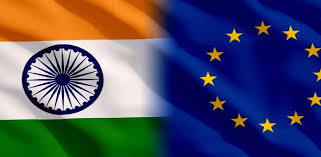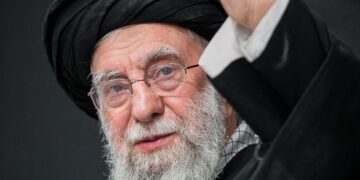By: Mohammad Arfat
On October 9, 2024, I was compelled to ponder the essence of humanity and how it can be distilled into a few words, such that its intrinsic nature may become evident. Humanity, as the highest virtue, seems increasingly scarce in today’s world. Without it, one loses the right to be called “human.” In Islamic thought, the pinnacle of righteousness is humanity, yet it remains an elusive attribute in contemporary society.
The world is populated by many, but genuine humanity is a trait possessed by only a few. Even kinship, once sacred, is eroding; brothers betray brothers, sons murder fathers. Such actions corrode the very essence of human dignity. The dissolution of humanity accelerates with every passing day.
It is disgraceful when, in moments of dire need, we turn away from those seeking aid or recognition. This reflects a deep absence of empathy and a devaluation of human worth. Simply being human is insufficient—one must also embody human emotions. Tragically, humanity is being dismantled by those who claim to be human.
We must learn to assess people not by external appearance or clothing, but by the depth of their character. When an individual’s suffering is turned into a spectacle for others, it is a clear sign of humanity’s demise. Viewing others through the narrow lenses of religion, nationality, or political views diminishes our shared humanity. When one person kills another, it reflects a profound disregard for life. When one ascends, rather than celebrating their success, we sabotage their rise out of envy. This is the antithesis of humanity.
When a worker enters our home, whether from Kashmir or another land, they must be treated with the same respect we afford our own family. Respect and kindness must not depend on race, nationality, or religion. Every individual, whether black, foreign, Sikh, Christian, or of any creed, deserves compassion. Each friend should be regarded as a brother.
The most beloved individual to Allah is the one who benefits others the most, who loves His creation and holds it in high regard. In our egocentric modern world, people prioritize their own dignity and sanctity, while disregarding the honor of others. The division between human beings is evident, and humanity appears to have descended into its lowest instincts. In times of crisis, instead of offering help, many become passive observers, even turning suffering into entertainment. Today, youth often capture the misery of others on platforms like Snapchat for personal amusement.
True humanity manifests in selfless acts: donating blood, helping the needy without hesitation. If someone suffers, we should not only feel empathy but also act to relieve their pain. Unfortunately, respect has become an increasingly rare currency, and even the most sacred of dignities, like a woman’s honor, is often trampled. Society has degraded to the point where many women live in constant fear, their security threatened by lecherous men.
Humanity cannot merely be defined by actions; it requires a deep understanding of the rights of others, the removal of malice from one’s heart. True humanity is a synthesis of compassion, sympathy, and ethical conduct. The Qur’an teaches that humanity originates from a single soul and its mate, spread across the earth as men and women, and mandates respect for one another as the essence of righteousness.
A man who respects others is like a bird set free, liberated by his respect for their dignity. When such a person repents sincerely, humanity is reignited within him, and he becomes genuinely invested in the welfare of others, indifferent to his own safety. He is sensitive to the suffering of others, respectful of differing beliefs, and committed to the betterment of humanity. It is our collective duty to nurture humanity in the hearts of all individuals, so that we might elevate the name of humanity itself.
Deception, even against a sibling, parent, or friend, causes a grievous wound to humanity, weakening the conscience. Hypocrisy flourishes, and the soul hardens. A person devoid of conscience forfeits their claim to life itself; such a being is bereft of the essence of existence, and it would be better for them never to have been born.
When a beggar seeks aid, we must respond willingly, from the heart. We must revere the elderly, care for our parents, and honor our teachers. We should strive to be better neighbors, offering help whenever possible. The person who embodies these virtues is the true epitome of humanity.
Feeding the hungry, alleviating suffering, caring for the ill—these are expressions of true humanity. The rights of humanity, as ordained by Allah, cannot be ignored. Yet tragically, many neglect these duties, becoming a detriment rather than a benefit to others.
The ideal human is one who refrains from oppressing others, who suppresses anger, pardons wrongdoers, and acts out of sincere fear of Allah. True humanity is found in someone who feels the pain of others as their own, who internalizes their suffering, and is willing to sacrifice their own life for the betterment of humanity. Such a person shares in the grief of others, maintains a pure conscience, and discerns right from wrong with clarity. They are compassionate, respectful of all religions, and honor the dignity of every person, irrespective of gender, creed, or background.
He who desires for others what he desires for himself, who holds others’ well-being as equal to his own, is worthy of the title of “human.”





